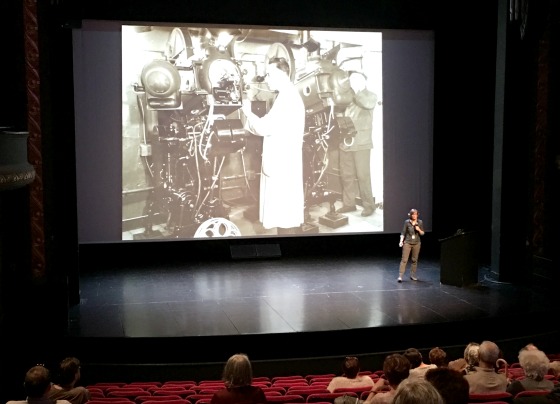Fascinating research comparing cinema audiences in post-war Europe has earned an expert from De Montfort University Leicester (DMU) and two colleagues significant new funding.

Dr Pierluigi Ercole
The project - European Cinema Audiences – is analysing programming data and audience memories across seven cities between 1951 and 1953 to gain a better understanding of the entangled histories of cinema-going.
Securing more than £850,000 from the Arts and Humanities Research Council will allow the project to broaden its scope over a three-year period.
Dr Pierluigi Ercole, DMU associate professor in Film Studies and the research project’s co-investigator, is working with principal investigator Dr Daniela Treveri-Gennari at Oxford Brookes University and co-investigator Dr Lies Van de Vijver at Belgium’s University of Ghent.
Together they are mapping European cinema-going across seven mid-sized cities - Bari (Italy), Brno (Czech Republic), Ghent (Belgium), Gothenburg (Sweden), Leicester (United Kingdom), Rotterdam (Netherlands) and Magdeburg (Germany).

A European Cinema Audiences event in Ghent
They are delving deep into local archives and inviting residents to share their memories at an event taking place in each city this October.
In Leicester, the event will be organised with Phoenix Independent Cinema and Art Centre, a DMU partner, and Dr Ercole is also working closely with the Media Archive for Central England.
RELATED NEWS
Discover DMU - visit us on our next Open Day
DMU students play their part at Asian Film Festival
Sights and sounds of London's Sixties underground brought to life
Dr Ercole said: “This is the first comparative project of its kind, allowing us to paint a picture of how films were distributed and received in the 1950s. We’re investigating the differences and similarities in the way cinema-going was practised, experienced and remembered across Europe.
“Even with television sets coming into play in the 1950s, most families couldn’t afford one, so going to the cinema was still a major form of entertainment.
“One project participant in Italy remembers looking forward to watching an episode of a popular television programme, screened before the feature film, at the local cinema.
“Interestingly, the film in itself is often cited as a secondary experience. For many people, their memories are centred on things like the smells they associated with a trip to the cinema, the route they took to get there, the sense of routine and other feelings a visit evoked.
“For example, a Leicester cinema-goer, who was a journalism student at the time, used to keep a detailed diary of her cinema-going in shorthand, so her mother couldn’t read it.”
The project has gone from strength-to-strength, after initially being awarded £7,500 in 2016 to carry out research in Great Britain, Italy and Belgium over the course of a year.
Posted on Tuesday 22 May 2018